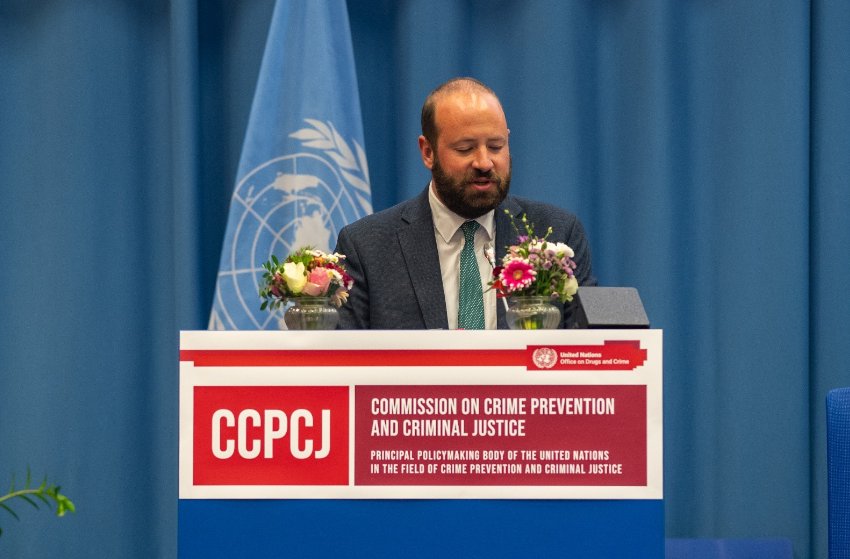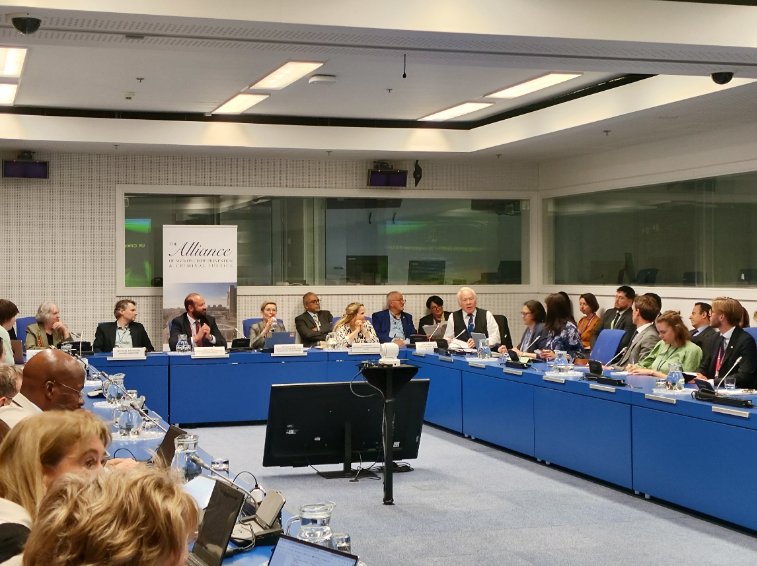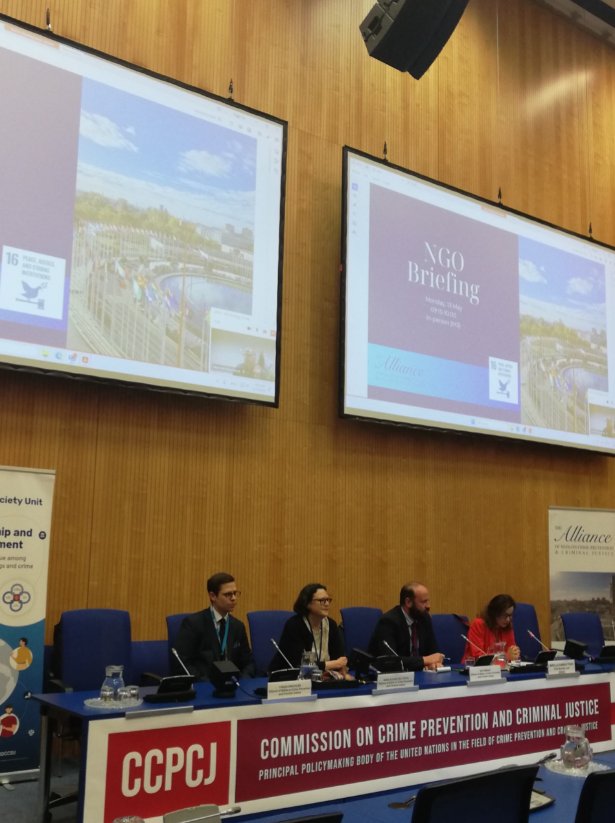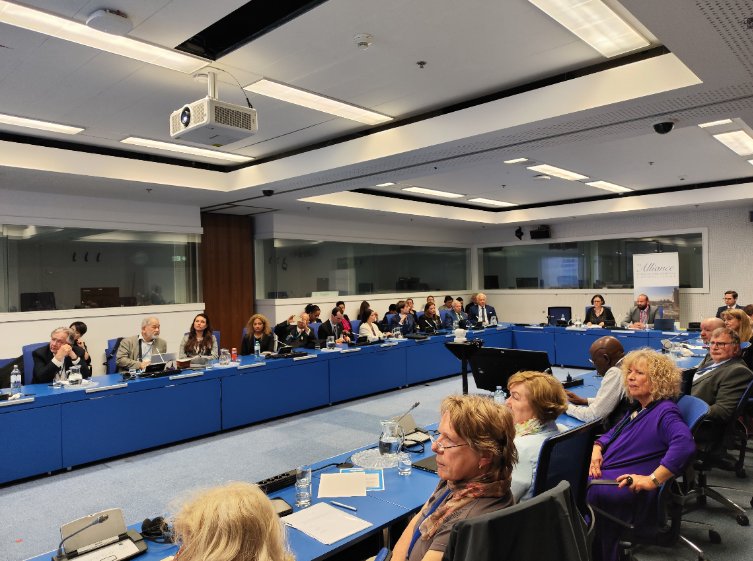A short summary of the 33rd session of the CCPCJ
The 33rd session of the Commission on Crime Prevention and Criminal Justice (CCPCJ) marked a significant event for the Alliance of NGOs on Crime Prevention and Criminal Justice. As an umbrella association, the Alliance to advance civil society and NGO demands, playing a crucial role in shaping the discourse on crime prevention and criminal justice.
The Chair, Ian Tennant, delivered two statements on behalf of the Alliance during the Commission. He emphasized the long-standing partnership between civil society and the UN, highlighting civil society’s vital role in providing community-based perspectives, advocating for victims' rights, and promoting gender-sensitive approaches. He also addressed the weak progress towards achieving SDG 16 and the Kyoto Declaration's objectives, calling for enhanced collaboration between governments, civil society, and international organizations. His statements reinforced the necessity of a whole-of-society approach to effectively address complex crime and justice challenges, underscoring the critical contributions of civil society in this global effort.
A highlight of the CCPCJ for the Alliance was its side event “Facilitating civil society engagement in the 15th UN Congress on Crime Prevention and Criminal Justice”, which featured a panel of high-level speakers who engaged in a robust and productive debate (Ian Tennant, Chair, H.E. Alex Wetzig, Permanent Representative of Chile to the UN, Michael Richardson, United Kingdom, Dr. Natalia Ollus, Director, HEUNI, Jay Albanese, Co-Founder, Criminologists Without Borders and Doris Resch, Secretariat to the Governing Bodies, UNODC). This discussion was focused on civil society’s role and engagement at the UN Crime Congresses and discuss proposals for ensuring the engagement ahead of and at the 2026 UN Crime Congress in the United Arab Emirates. The panelists reached a consensus on the importance of persistent engagement with civil society and emphasized the need for initiating regional-level projects to effectively address crime prevention. The debate underscored the vital role of local initiatives in crafting comprehensive strategies to tackle crime.
The Alliance's involvement extended beyond the side event. It played a pivotal role in the informal dialogue sessions with civil society and NGOs, the Executive Director of the UNODC, and the Chair of the CCPCJ.
These sessions provided a platform for authorities to share updates on their ongoing projects and allowed for a reciprocal exchange of ideas and feedback between the authorities and civil society representatives. This interaction fostered transparency and mutual understanding, enhancing the collaborative efforts to combat crime and improve justice systems.
In the margins of the CCPCJ, the Alliance held its annual General Assembly, where Lisa Hartevelt from Wildlife Justice Commission, Mythri Jayaraman from The International Legal Foundation, and Tariq Khosa from Centre for Governance Research were elected as Vice-chairs. Jay Albanese from Criminologist Without Borders, Gerson Nozea from Rapha International, and Olivia Rope from Penal Reform International were elected as board members. During the assembly, the Executive Board of the Alliance provided an account of its activities over the past year.
These activities included the working groups on Non-State Torture, Crimes that Affect the Environment, and the newly created Access to Justice, aimed at enhancing the effectiveness of crime prevention measures. By presenting this detailed report, the Alliance ensured that all its members were fully aware of the progress and achievements made among the diverse set of members of the organization.
Additionally, the Alliance organized a successful civil society get-together, which served as an informal venue for exchanging information and discussing projects within civil society. The informal setting facilitated networking, enabling NGOs to share their experiences, thus reinforcing the collective effort to address crime prevention and criminal justice issues.
Overall, the 33rd CCPCJ proved to be a valuable opportunity for civil society to engage in meaningful dialogue and promote initiatives. Its active participation contributed to the broader objective of creating safer and more just communities worldwide.
19 May, 2024



